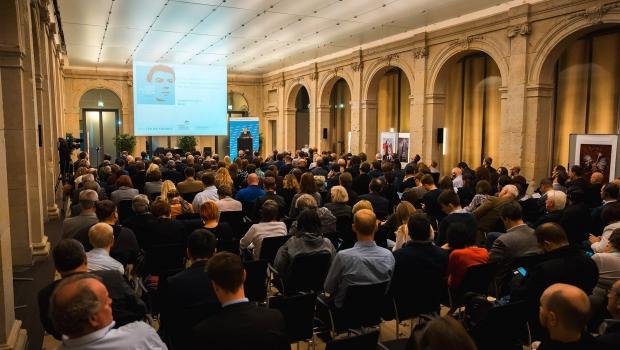A Russia without Putin?

"My father was associated with the future. That is why the future is the theme of the forum." It was with these words that Zhanna Nemtsova opened the Boris Nemtsov Forum 2017 in Berlin, noting that the eternal discussions about Putin and his politics were indeed important, but were failing to take Russia any further. Or, as she put it, ‘discussing Putinism is about the same as discussing Robert Mugabe’. Entitled "Politics without Vision? Future Lab on Russia and the EU", the Forum gathered diverse civil society actors on the 9th and 10th of October 2017. Coming from the domains of art and culture, business and research, they met to debate their visions of a post-Putin Russia. For the second year in a row, the forum was organised by the Friedrich Naumann Foundation for Freedom and the Boris Nemtsov Foundation for Freedom and supported by the European Endowment for Democracy.
In his welcoming speech, Dr Wolf-Dieter Zumpfort, Board Member of the Friedrich Naumann Foundation for Freedom, emphasised the close bond between the two host foundations and encouraged a lively exchange between the speakers and guests. Insisting that the thread between Russia and the EU should not be broken, he recalled this had also been Nemtsov’s wish.
The opening words by Gerhart Baum, former German Minister of the Interior, also called for a relationship with Russia marked by “dialogue and openness”. From his time in the Bundestag, he vividly recollected the ever-recurring problems in the relations between Europe and Russia but also the approaches to solutions and visions.
Deliberate disinformation bears fruit, hope remains
In her speech for freedom, the young author Alisa Ganieva made it clear how difficult it was to convey these visions in Russia, though. According to her, Russian society had become deaf and dumb. Large sections of the population were trying to relativize injustice, thus feeding the doubters, who had already been substantially influenced by the Kremlin’s propaganda and disinformation. Those who listened to Ganieva’s speech must have got a terribly gloomy impression of the current situation in Russia; it was however impressive how much stamina and personal hope the writer radiated, despite all circumstances.
Interactive future workshop
That Ganieva was not alone in her outlook was evident in the various Open Space Working Groups, which made up a substantial part of the second conference day. The more than 200 participants engaged in interactive discussions on themes such as the new world order, the future of communication, new forms of civilian resistance, and artistic expression.
Regardless of how diverse the perspectives and discussions were, everyone agreed that people should become actively engaged in order to change things. Participants were unanimous that the silent majority should not determine the discourse and paralyse the exchange. Maria Snegovaya, a political scientist at New York’s Columbia University, sees the greatest problem in the Russian people’s failure to claim a say in politics, making it hard to bring about a lasting change in the situation. But how could one surmount the status quo?
A number of approaches evolved in the working groups: Stefan Melle from the German-Russian Exchange, for example, called for visa-free arrangements to facilitate the physical exchange and thus the exchange of ideas and experience. Elena Panfilova, Vice President of Transparency International, talked about the need to approach people on a more emotional plane in order to reach them, wherein new communication channels such as the social media could come in particularly useful. Especially in Russia, many activists see Facebook, Twitter and the like as a chance to act below the government’s radar.
The hope for better times
Nonetheless, even the greatest optimists could not shut their eyes to the Russian reality: “Ultimately, one could only hope for better times, “ was the pensive conclusion of the Art and Culture Working Group, moderated by the painter Dmitry Vrubel and the author Wladimir Kaminer, both of them living in Germany.
It was thus agreed: a lot remains to be done. Platforms such as the Boris Nemtsov Forum are therefore all the more important. The conference is a venue for the Russian expat community and European experts alike. Their commitment is a ray of hope. Probably there will indeed be a new Russia soon. Whether it will be a better one also depends on how well prepared for the future we are.